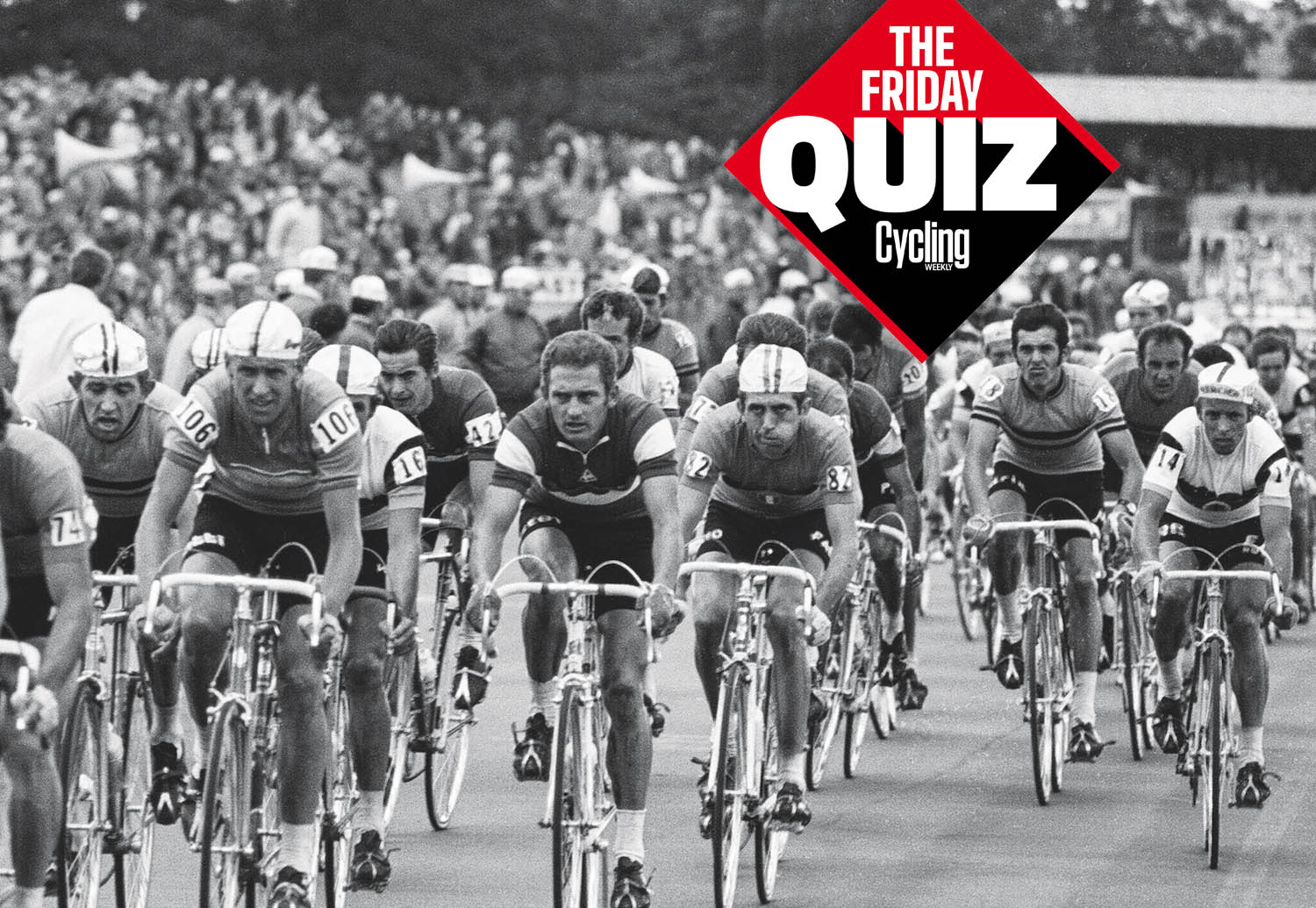Seven ways cycling is good for your brain health
It’s not just cardiovascular fitness that cycling helps


Sponsored feature in partnership with Alzheimer’s Research UK
There’s a constant stream of news about the benefits of cycling - and indeed all aerobic exercise - to your heart health and to your cardiovascular system in general. There’s a lot less said about how cycling can improve your brain’s physical health and your psychological wellbeing.
But there are loads of ways in which a cycle ride can help your brain as well as your heart. Here are seven things that cycling does to improve your brain health.
>>> Want to give it a go? See our Cycling Weekly x ARUK training programme
Feeds your brain better
Keeping your heart, arteries, veins and lungs working efficiently doesn’t just mean more bloodflow to your muscles, it also improves how well your brain can function. Your brain relies on the flow of blood for oxygen and food to keep it working, while your blood also takes away waste products.
Studies show that when you’re not moving, around 25 percent of your body’s energy is used to feed your brain, although your brain is only around 2 percent of your body mass. That’s a lot of energy - around 400 Calories a day - and the more efficiently your heart can supply blood to your brain the better, so improved circulation has a direct effect on the health of your brain.
Helps your brain to rebuild and repair
It’s been shown too that exercise helps the process of building new nerve cells in the brain and new connections between them. It also beefs up the hippocampus, which is the part of your brain responsible for memory and learning. This could help protect against cognitive decline and memory loss with age.
Lifts your mood
Beyond the physical effects on your brain of cycling, there are a whole host of psychological benefits, which will improve how you feel and your general well-being. Although they’re less tangible in themselves, they spill over into whole-body effects too and some of them have been directly linked to physical changes in your brain.
Exercise - particularly outdoors - has been shown to be a great mood booster. There is a physical basis for this: being active releases chemicals in your brain called endorphins. These stimulate a feeling of pleasure and enjoyment - a natural high.
Sunlight releases yet another mood-boosting brain hormone, serotonin, so cycling outdoors gives you a double dose of happiness boosters.

Keeps you co-ordinated
Cycling is a great way to maintain and improve your neuromuscular coordination. Balancing a bike while pedalling, shifting gears, braking, monitoring where you’re going and keeping aware of what’s going on around you is quite a lot to do all at once. That involves handling muscle coordination, concentration, visual inputs and balance, all controlled by your brain.
Regularly challenging your brain is a good way to stay sharp and helps to build up what’s called cognitive reserve, which may reduce cognitive decline and the risk of dementia in old age.
Keeps you social
Social activity has been shown to improve brain health, with social isolation a factor in around 4 percent of cases of dementia in later life according to Alzheimer’s Research UK.
Cycling can be a highly social activity. It’s easy to take part in a group ride and there’s plenty of time for conversation either while riding or during the coffee stop that’s a feature of almost every ride. Cycling clubs around the country organise group rides to cater for all levels of ability, there are loads of organised rides and sportives you can sign up for or you can just get out for an informal ride with friends.
You can even sign up for a cycle ride for charity: Alzheimer’s Research UK has a full schedule of cycling, running and other events organised throughout 2022.
Helps you sleep better
Another benefit to brain health from cycling comes from improved sleep. According to researchers at the Johns Hopkins Center for Sleep, exercise helps you to fall asleep quicker and improves sleep quality, with aerobic exercise like cycling increasing levels of the deep sleep that helps rejuvenate the brain.
Other studies have shown that exercise can help you feel less sleepy during the day and that better sleep can help avoid overeating, weight gain and knock-on problems during your sleep like obstructive sleep apnoea.
Reduces stress
It’s well known that stress elevates blood pressure, with adverse effects on your circulation, but it also has a deleterious effect on brain function, with chronic stress shown to cause inflammation in the brain, which could have damaging long-term effects.
So reducing stress is really important for brain health and exercise has a key role to play in lowering stress levels. A cycle ride is an opportunity to think about something different, relax and clear your head.
Cycling is a great way to reap the brain health benefits of exercise. And you don’t need to take on huge challenges to see the effects; you’ll see benefits from even a few hours of moderate intensity riding a week. If you’re worried that cycling might be too demanding for you, an electric bike might be a good option. It can make riding more accessible, but will still give you almost as good a work-out as riding a pedal-powered bike.
For more advice and ideas on how to keep your brain healthy and help to reduce the risk of dementia, visit Alzheimer’s Research UK’s Think Brain Health Hub at www.thinkbrainhealth.org.uk
The latest race content, interviews, features, reviews and expert buying guides, direct to your inbox!
Paul started writing for Cycling Weekly in 2015, covering cycling tech, new bikes and product testing. Since then, he’s reviewed hundreds of bikes and thousands of other pieces of cycling equipment for the magazine and the Cycling Weekly website.
He’s been cycling for a lot longer than that though and his travels by bike have taken him all around Europe and to California. He’s been riding gravel since before gravel bikes existed too, riding a cyclocross bike through the Chilterns and along the South Downs.
-
 First to bike on all five Great Lakes: One army veteran’s extreme winter cycling feat
First to bike on all five Great Lakes: One army veteran’s extreme winter cycling featBattling subzero windchills, cracking ice and mechanical failures, Eric McKinney became the first rider to bike across lakes Erie, Ontario, Huron, Michigan and Superior
-
 The Friday cycling quiz: How well do you remember the 1970s
The Friday cycling quiz: How well do you remember the 1970sThe decade of Eddy Merckx will also be remembered for the birth of mountain biking, the world champs coming to the UK and dominant time trialist
